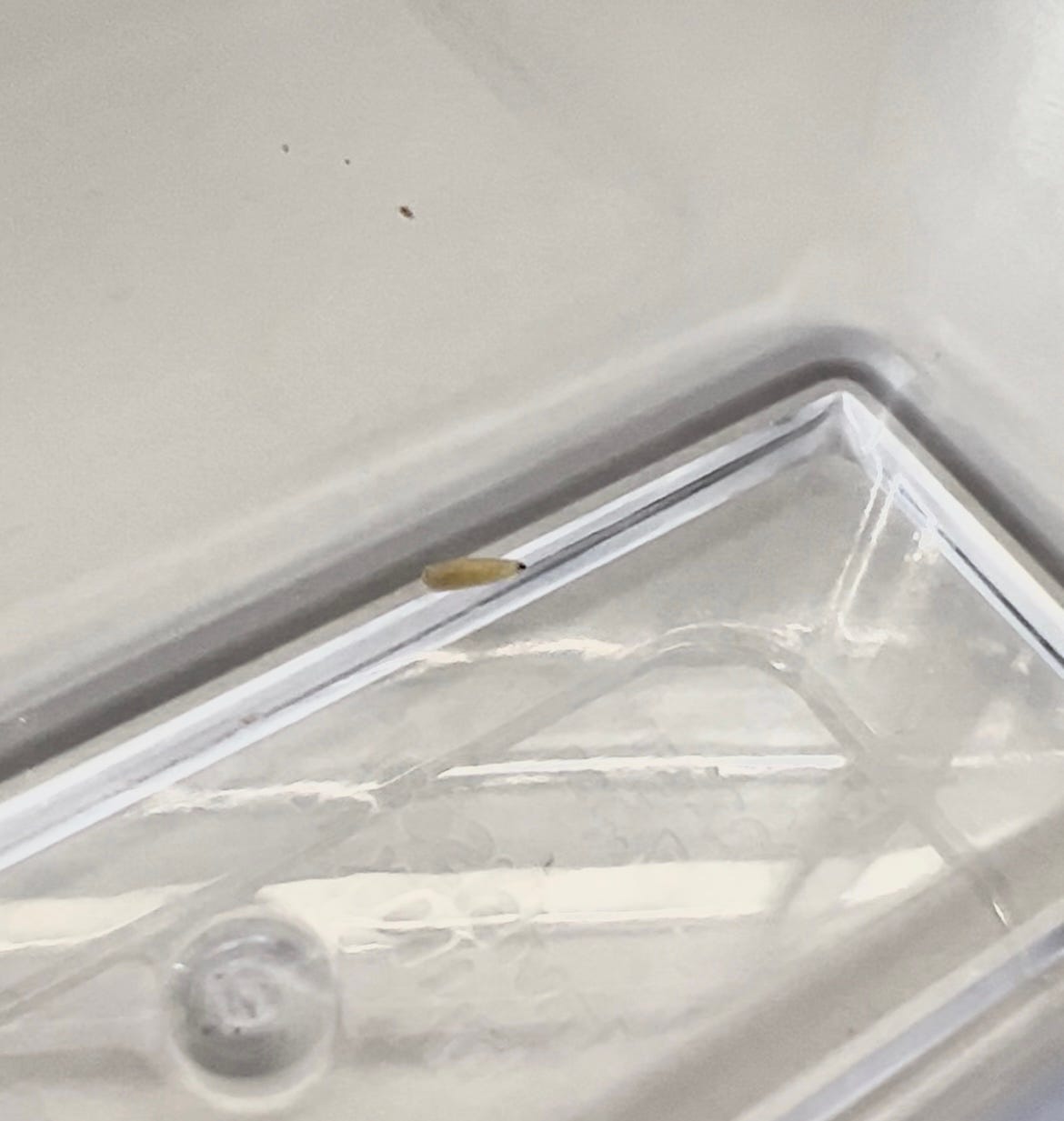It’s been a while since I’ve shared a weekly digest, yes. But I’ve been spending some of my free time recently trying to re-ignite former joy-bringing behaviors. More cooking, lately. Reading again. Trying to write, frustrated at the atrophy, trying doggedly. A lot of calcification — my thoughts feel clunky. And I’ve been having an especially hard time keeping up with my friends (since February, maybe), some of whom are sending increasingly concerned messages asking me if I’m still alive, even, all of which is all to say that it’s high time I brought margin-howling back. In its familiar format. If only for a week.
1. A tweet

2. Always Kino, but specifically this song right now
If only that Viktor Tsoi movie was half as good as his discography. Which reminds me that I should watch Assa sometime soon (for the soundtrack).
3. A paper about having hundreds and hundreds of open tabs
A useful dichotomy: those who have uncountable numbers of tabs currently open across N devices, and those who close a tab after they’re done with it. I’m not so Manichean as to suggest that one lifestyle is superior. I just get along very well with my like-minded link-hoarders. Also, this habit is directly responsible for this digest (because I can finally close a tab after I’ve immortalized it here).
Sometimes the fact that I keep hundreds of tabs open is upsetting for others. I don’t get it, but my normal response to their questioning is that it helps me offload my cognition. A little daily active externalism. Call me Otto. Otto was probably better at finding and referencing existing tabs, but I am soothed by the knowledge that if I really needed to find something and had a gut feeling that I had seen it somewhere before, I’d probably look in my tabs first.
Here’s a cool CHI 2021 paper from some researchers at CMU that synthesizes perspectives on tab-hoarding and how it can hinder or facilitate sensemaking1 tasks. I like their conclusions: that tabs should be better at reflecting “users’ complex task structures” (true, I’d like web-clusters of my open tabs that are responsive to what I’m working on) and that tabs should “allow users to externalize their thoughts and synthesize information” (also true, why can’t I differentiate between the type of tab that is a paper or a picture or an object or a place or a concept or a person or a dream?).
4. Sylvia Plath’s diaries, food diary
I’ve had a kinship with Sylvia since I first read The Bell Jar in middle school and felt irrevocably changed, felt justified twice over when I first heard Sylvia by The Antlers as an awkward 15 year old. Finally, someone that put that old nagging feeling to words (Clarice Lispector did the same for me). This past week I’ve been getting through Plath’s Unabridged Journals, a chronological collection of all her diary entries and a few letters. I started and abandoned reading it in 2019, but found the old pdf still saved on some Drive folder when looking for a neuroscience textbook. For the Plath appreciator who perhaps does not want to commit to 700 pages of Plath, this Twitter account is likewise a delight:

Especially when the dates match up with today’s date. Especially when the excerpts are paired with illustrations by Lily Taylor:
5. Psychogeography as a concept
Learned a new word: psychogeography. Learned it from this old interview with China Mieville. Guy Debord and his Parisians are more or less responsible for defining it, though flânerie (wandering, idling, strolling, indulgently) comes from Baudelaire. Is there something about French cities that makes them uniquely wander-ful? Will Self: someone willing to wander, untethered from the demands of their day and of the city, is “an insurgent against the contemporary world, an ambulatory time traveller.”

Enjoy your urban palimpsests and please productively misunderstand the city this weekend, even if the term has become fruitlessly diluted:
It’s as if the experience of being a pedestrian in the city has become so unfamiliar to so many people, that they now think the very act of walking around makes them a kind of psychogeographic avant-garde.
- Geoff Manaugh
6. Adopting a Sherwood Hunter painting
I stumbled upon Jubilee Procession by Sherwood Hunter, and in trying to find a high-res version discovered that this painting is up for adoption. By which the Royal Cornwall Museum means that you can financially contribute to the restoration and upkeep of this artwork — let’s not get strict with the definition of adoption.

Other pieces the museum is raising money for include a medicine chest, a cool rock, and a bird.
7. Find of the week
This worm in my cherries (hello)
Yours, again,
N
Sensemaking is one of my favorite HCI terms. Anything can be sensemaking! It means everything and nothing at once! It’s been misused so often that it’s been fully stripped of meaning (if Weick even had an internally consistent definition for the term in the first place).




